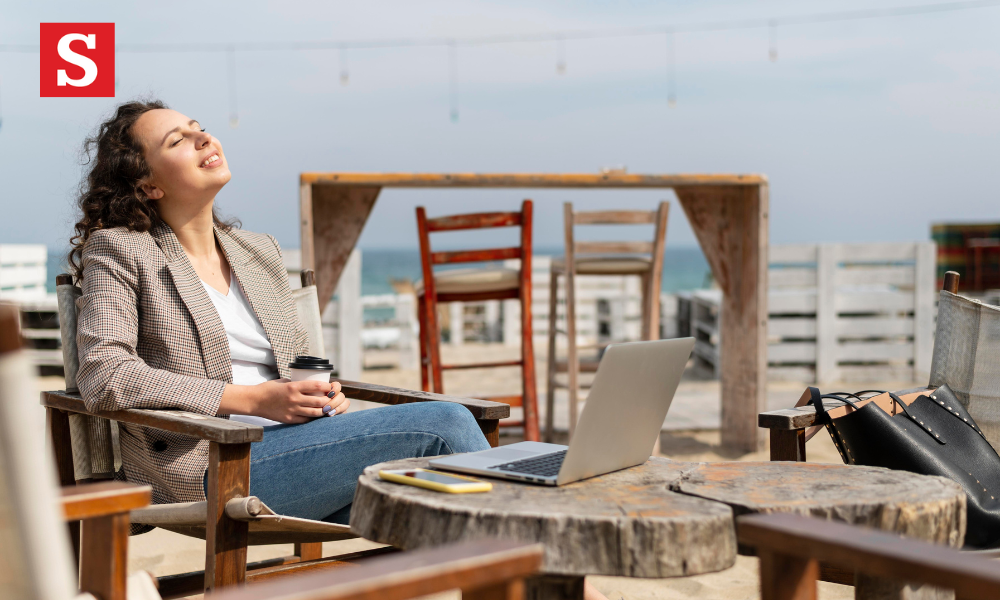In recent years, a new trend has emerged among millennials in the workforce – quiet vacationing. As this generation continues to shape workplace culture, quiet vacationing has become a subtle yet powerful way to disconnect without drawing attention. This article delves into the growing phenomenon, exploring the reasons behind it, its impact, and how it redefines modern vacationing.
What is Quiet Vacationing?
Quiet vacationing refers to millennials taking time off without explicitly informing their employers or colleagues. Unlike traditional vacations where employees announce their leave, quiet vacationing allows individuals to work remotely in relaxed environments or use personal days without formal declarations. This trend reflects a shift in how millennials view work-life balance, autonomy, and mental health.
A recent Newsweek article highlighted that millennials are increasingly opting for quiet vacations as a way to manage burnout while maintaining professional boundaries.
Why Are Millennials Embracing Quiet Vacationing?
1. Avoiding Workplace Guilt
One of the key reasons behind this trend is the pervasive sense of guilt associated with taking time off. Millennials often feel pressured to remain available and productive, even during their downtime. By quietly vacationing, they sidestep the potential judgment or perceived lack of dedication from colleagues and supervisors.
2. Protecting Mental Health
Mental health has become a significant priority for millennials. The ability to quietly disconnect allows them to recharge without the added stress of explaining their need for a break. This practice aligns with the generation’s broader advocacy for wellness and self-care.
3. Flexibility and Remote Work
The rise of remote work has blurred the lines between professional and personal life. Millennials, accustomed to flexibility, use quiet vacationing to integrate travel and leisure into their work routines seamlessly. This approach provides them with a mental break without fully stepping away from their responsibilities.
For more insights on the connection between PTO and this trend, check out this Best Companies Group blog.
The Impact on Workplace Culture
Quiet vacationing is reshaping how companies approach paid time off (PTO) and employee well-being. While some employers may initially resist this trend, forward-thinking organizations recognize its benefits. Encouraging quiet vacationing, or at least tolerating it, can lead to higher job satisfaction, improved retention, and increased productivity.
According to another Newsweek report, companies that foster flexible PTO policies experience greater employee loyalty and reduced burnout rates.
1. Increased Productivity
Contrary to concerns about reduced output, quiet vacationing often enhances productivity. Employees return to their tasks refreshed and more focused, contributing positively to overall performance.
2. Employee Retention
Millennials value workplaces that prioritize their well-being. Companies that acknowledge and adapt to quiet vacationing trends are more likely to retain top talent, fostering a culture of trust and mutual respect.
3. Normalizing Work-Life Balance
By supporting quiet vacationing, organizations can help normalize the importance of work-life balance. This shift not only benefits millennials but also sets a precedent for future generations entering the workforce.
How Employers Can Adapt
Employers can proactively address quiet vacationing by developing policies that encourage transparent yet flexible approaches to time off. Here are a few strategies:
- Encourage Open Communication – Create an environment where employees feel comfortable discussing their need for breaks without fear of judgment.
- Flexible PTO Policies – Implement policies that allow for remote work and flexible vacationing to accommodate diverse employee needs.
- Promote Mental Health Initiatives – Offer mental health resources and encourage practices that support employee well-being.
Is Quiet Vacationing the Future?
As millennials continue to dominate the workforce, quiet vacationing is likely to become even more prevalent. This trend reflects broader societal changes where autonomy, mental health, and flexibility are increasingly valued. By understanding and embracing this practice, both employees and employers can foster healthier, more productive work environments.




